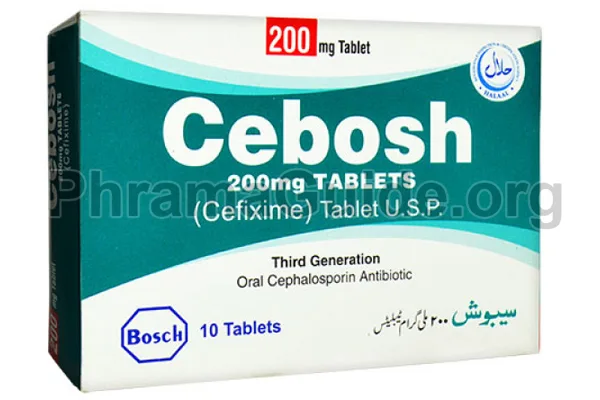Cebosh is an antibiotic commonly used to treat a variety of bacterial infections. Like all medications, it can have side effects, which can range from common and mild to less common and more severe.
Common Side Effects
- Gastrointestinal disturbances: Nausea, diarrhea, and abdominal pain are among the most frequent side effects. Taking Cebosh with food can help reduce these symptoms.
- Allergic reactions: Some people may experience allergic reactions to Cebosh, which can manifest as hives, itching, swelling, or difficulty breathing.
- Headache: Headaches are a relatively common side effect of Cebosh.
- Skin rash: Skin rashes can occur as a reaction to Cebosh.
- Vaginal yeast infections: Cebosh may disrupt the balance of microorganisms in the body, leading to vaginal yeast infections in some individuals.
Less Common Side Effects of Cebosh
- Clostridium difficile-associated diarrhea (CDAD): This is a severe form of diarrhea caused by the bacterium Clostridium difficile. It can occur as a side effect of many antibiotics, including Cebosh.
- Blood disorders: In rare cases, Cebosh may lead to changes in blood cell counts, such as leukopenia (reduced white blood cell count) or thrombocytopenia (reduced platelet count).
- Liver problems: Some people may experience liver-related side effects with Cebosh, such as elevated liver enzymes or jaundice.
- Kidney problems: Although rare, Cebosh has been associated with kidney-related side effects, including elevated creatinine levels.
- Superinfections: Prolonged or repeated use of Cebosh can lead to superinfections, which are new infections that occur alongside or after the initial infection.
- Neurological symptoms: Infrequently, Cebosh can cause symptoms like dizziness or confusion.

What is Cebosh?
Cebosh is one of the leading brands of Cefixime, manufactured and marketed by Bosch Pharmaceuticals (Pvt) Ltd, Pakistan.
Cebosh : Available Formulations and Strengths
Presently, Cebosh is available in Tables, Suspensions, and Capsule Forms.
Cebosh Tablets : 200mg and 400mg strengths
Cebosh Suspensions : 100mg/5ml and 200mg/5ml strengths
Cebosh Capsule : 400mg strength
What Are The Possible Drug Interactions of Cebosh?
- Probenecid: Probenecid, a medication used to treat gout, can reduce the excretion of Cebosh from the body, leading to higher blood levels of Cebosh. This can increase the risk of side effects or toxicity.
- Warfarin: Cebosh may affect the metabolism of warfarin, an anticoagulant (blood thinner). This can lead to changes in blood clotting times, so careful monitoring is required when these drugs are used together.
- Aminoglycoside antibiotics: When used in combination with aminoglycoside antibiotics, Cebosh can increase the risk of kidney damage. This combination should be used with caution and under close medical supervision.
- Diuretics: Cebosh may reduce the effectiveness of certain diuretics, such as furosemide or hydrochlorothiazide, which are used to manage fluid retention and high blood pressure.
- Antacids or supplements containing aluminum, magnesium, or calcium: These can interfere with the absorption of Cebosh, potentially reducing its effectiveness. To avoid this interaction, Cebosh should be taken at least two hours before or after antacids or mineral supplements.
- Iron supplements: Similar to antacids, iron supplements can reduce the absorption of Cebosh. Take Cebosh at least two hours before or after taking iron supplements.
- Oral typhoid vaccine: Cebosh may reduce the effectiveness of the oral typhoid vaccine. If you need this vaccine, consult your healthcare provider about the appropriate timing.
- Other antibiotics: Combining Cebosh with other antibiotics, such as erythromycin or clarithromycin, may lead to increased side effects or decreased effectiveness. Your healthcare provider will determine the appropriate course of treatment if multiple antibiotics are needed.

Leave A Comment